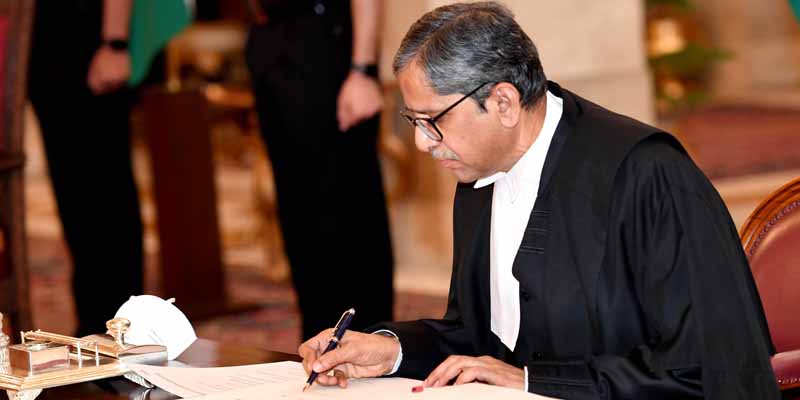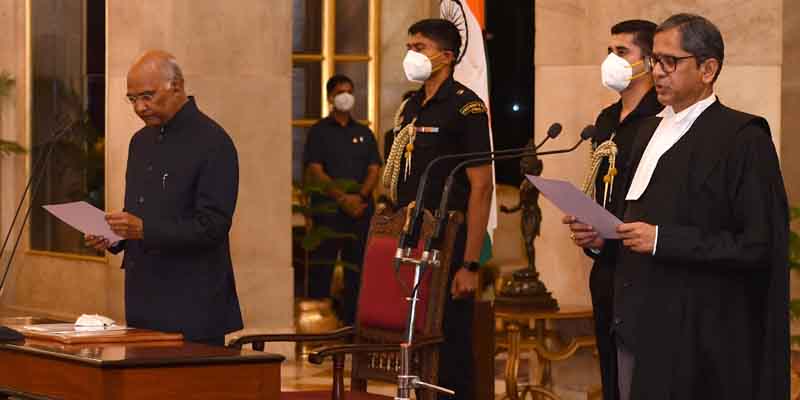- India
- Apr 24
Justice N.V. Ramana sworn in as 48th Chief Justice of India
Justice N.V. Ramana was sworn in as the 48th Chief Justice of India by President Ram Nath Kovind on April 24. He took the oath at a brief ceremony held at Rashtrapati Bhavan.
Justice Ramana was appointed as the CJI on April 6. He succeeds Justice S.A. Bobde who demitted office on April 23.
Process for appointment of CJI
• The Chief Justice of India and the judges of the Supreme Court are appointed by the President under clause (2) of Article 124 of the Constitution.
• Appointment to the office of the Chief Justice of India should be of the senior-most judge of the Supreme Court considered fit to hold the office.
• The Union minister of law, justice and company affairs would, at the appropriate time, seek the recommendation of the outgoing Chief Justice of India for the appointment of the next Chief Justice of India.
• Whenever there is any doubt about the fitness of the senior-most judge to hold the office of the Chief Justice of India, consultation with other judges as envisaged in Article 124(2) of the Constitution would be made for appointment of the next Chief Justice of India.
• After receipt of the recommendation of the Chief Justice of India, the Union minister of law, justice and company affairs will put up the recommendation to the Prime Minister who will advise the President in the matter of appointment.
Who is Justice Ramana?
Born on August 27, 1957, in Ponnavaram village of Andhra Pradesh’s Krishna district, Justice Ramana was enrolled as an advocate on February 10, 1983.
He was appointed as a permanent judge of the Andhra Pradesh High Court on June 27, 2000, and functioned as acting Chief Justice of the Andhra Pradesh High Court from March 10, 2013 to May 20, 2013.
Justice Ramana was elevated as the Chief Justice of Delhi High Court on September 2, 2013 and was appointed as a Judge of the Supreme Court on February 17, 2014.
Justice Ramana has authored path-breaking verdicts as a Supreme Court judge and one of them led to the end of internet ban in Jammu & Kashmir, and another brought the apex court under the ambit of transparency law.
The judgment penned by Justice Ramana in the Anuradha Bhasin case related to internet ban in Jammu & Kashmir following the abrogation of Article 370 provisions has been hailed by many as one of the progressive verdicts.
He was part of a five-judge constitution bench that had held in November 2019 that the office of the CJI was a public authority under the Right to Information Act. In the November 2019 verdict, the top court had also said “judicial independence has to be kept in mind” while disclosing information in “public interest”.
Justice Ramana will demit office on August 26, 2022.
Manorama Yearbook app is now available on Google Play Store and iOS App Store


